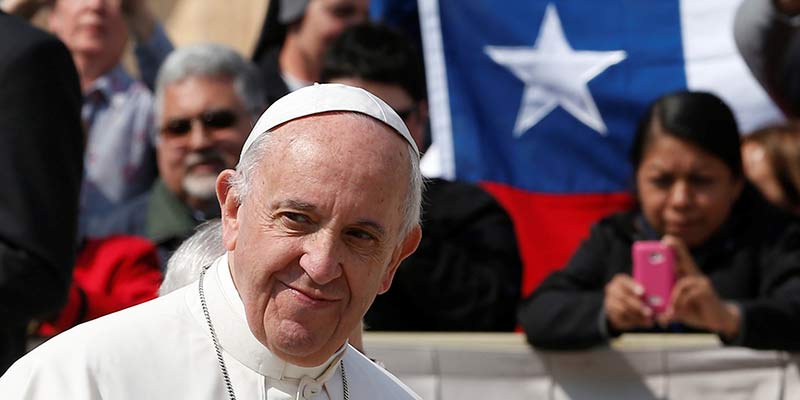"The next visit of the Pope Francis to Chile can be a privileged opportunity to open ourselves to a social coexistence based on that justice that brings peace. We must allow ourselves, in the midst of the political and social debates of the coming months, to be ready to revitalize the soul of Chile.". This is how the auxiliary bishop of Santiago de Chile and national coordinator of the visit to the country, Bishop Fernando Ramos Perez, defines the visit of Pope Francis.
The choice of the theme of the visit My peace I give you is due to the concern for the need to promote dialogue and social coexistence. "We need to have a climate that allows us to build again bridges of closeness and trust, the fundamental basis of all civic coexistence."Ramos Perez explains. "And this can only be achieved through the generosity of each one of us who make up the nation, going beyond our particular interests and placing the center of our concern for the common good, especially for the excluded and vulnerable.". In this way, the auxiliary bishop of Santiago de Chile goes on to explain: "Only in a climate of peace will we as a country - Catholics and non-Catholics alike - be able to respond to Pope Francis' exhortation of 'going out to the peripheries'.".
The Bishop of San Bernardo, Monsignor Juan Ignacio Errazúriz, emphasizes that Pope Francis "arrives in Chile at a difficult timedifficult. Particularly because of the divisions that have been provoked in the country by the political and ideological changes introduced, some of them affecting our deepest visions on life, family, education, etc. Today we need the Pope's presence".
40 years later
The last time the Pope traveled to Chile was in 1987, when St. John Paul II toured seven cities in the country during a five-day trip. Since that trip, the country's population has increased from 13 million to 17.8 million, and Catholics have decreased by 11 percentage points, from 70 percent to 59 percent.
Pope Francis' pastoral trip will take him to different Chilean cities. On January 15, the Holy Father will arrive in the capital, Santiago de Chile. The following day he will celebrate Mass in O'Higgins Park, the only massive act in the capital. After mass, he will have a meeting with religious and priests in the cathedral of the Chilean capital. He will also visit the San Joaquin prison, where he will meet with the inmates. He will end the day with a meeting with the priests of the Society of Jesus in the sanctuary of Padre Hurtado.
On January 17, he will travel to the city of Temuco, 690 kilometers south of the capital. In this city he will celebrate Mass at the airport. In the afternoon of the same day, Pope Francis will return to Santiago de Chile, where he will meet with young people and visit the Pontifical Catholic University of Chile.
On January 18, the Pope will travel to the city of Iquique, 1,780 kilometers north of Santiago. Mass will take place at Campus Lobito. From this northern city he will travel to Peru to continue his trip.








